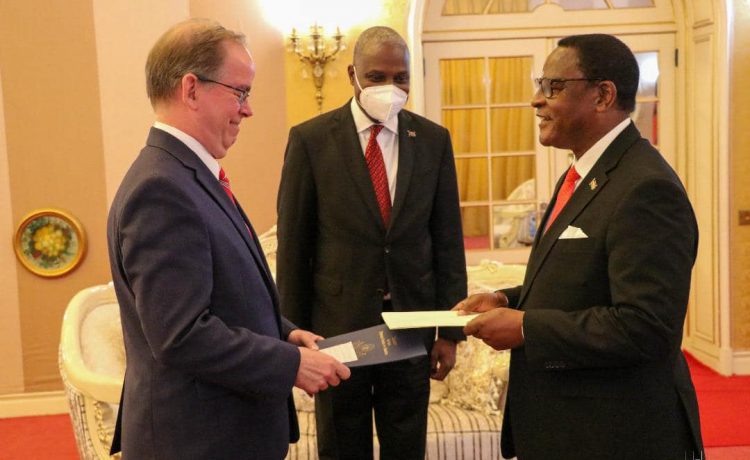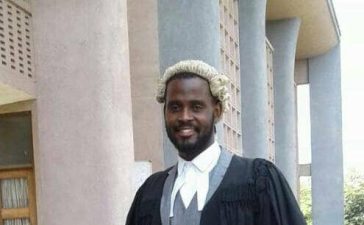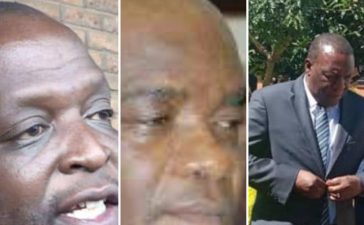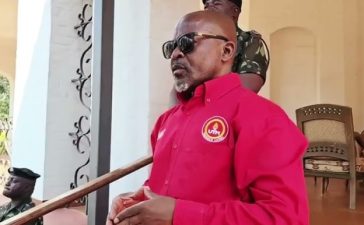The US government has said that it is supporting Malawi President Dr. Lazarus Chakwera’s commitment to fight corruption in the country, arguing that winning the fight will result in the elimination or reduction of the country’s poverty. This was said by David Young, the US Ambassador to Malawi, during Juneteenth celebrations on Wednesday night in the capital Lilongwe’s. Juneteenth is a US holiday commemorating the abolition of slavery.
Young described poverty in the country as a national crisis, and that the situation can only be alleviated if corruption is dealt with without fear or favor, among other things. Corruption, according to the Ambassador, generates a web of connections that perpetuates poverty and illegality.
“Battling corruption is a long-term battle, but it must begin today in earnest. The corrupt must be dismissed from positions of power. Through the development of a culture of transparency and openness, and with a strong dedication to access to information for the public, the rot of corruption will fade.
“This is Malawi’s battle and it must be led by Malawians. We, as partners, support the President’s efforts to combat corruption. It is a central part of making the economy work for all Malawians,” he said.
In terms of poverty, Young noticed that Malawians remain impoverished despite the country’s substantial aid from developing countries. He revealed, for example, that the United States spends more than $250 million per year to save lives and alter people’s lives for the better.
“But the sad reality is that all of the international assistance that has come to Malawi has not ended the cycle of poverty. We need to pair such interventions with the creation of a culture of opportunity to raise incomes and spread prosperity,” he said.
He added:
“The difficult reality is that the structure of Malawi’s economy is broken. The Malawian economy today does not work for the vast majority of Malawians. It works for a few people. But it does not work for Rebecca and Mary. And it also does not work for the vast majority of people in middle-class and working-class jobs.
“There are three things that, I believe, are essential if Malawi is to move forward in its battle to fight poverty and change lives for good, because no amount of foreign assistance will lift people out of poverty if the structure of the economy is broken. And to even begin talking about 2063, we must make changes in 2023. The road to progress must begin now and each step forward must be fought for and made with determination and courage.”
“The difficult reality is that the structure of Malawi’s economy is broken. The Malawian economy today does not work for the vast majority of Malawians. It works for a few people. But it does not work for Rebecca and Mary. And it also does not work for the vast majority of people in middle-class and working-class jobs.
In terms of remedies, Young believes that Malawi’s economy can be boosted by increasing investment and private sector involvement. He remarked that the economy has been declining in human terms for years, which is a terrible reality.
He said”
“The economy is now growing at, perhaps, two percent per year but the population is growing by nearly four percent per year. If the pie keeps shrinking, Malawi won’t be able to help its farmers and its urban and rural citizens to live better lives.
“Growing the whole economy is essential to lift Malawi’s people out of poverty. It is essential to expand two-way trade and investment with other nations, both around the region, across Africa, and around the world. The policy framework needs to be reset to make this possible. There must be a proactive approach to creating an environment for business and foreign investment.
“Laws should be supportive of investment – by both Malawians of all backgrounds and those from other countries as well. This can help diversify the economy into new agricultural crops, as well as services, financial activities, mining and other sectors. The constraints holding back investment in Malawi must be addressed. As President [Lazarus] Chakwera has said, the private sector is an ally, not an adversary.”
The US Ambassador was speaking to a group of government officials that included Finance Minister Sosten Gwengwe, Information Minister Gospel Kazako, and Foreign Affairs Minister Nancy Tembo, among others.













